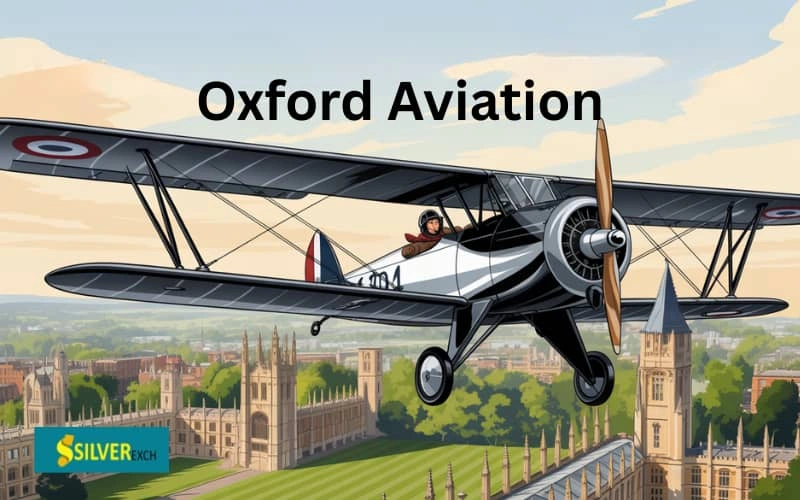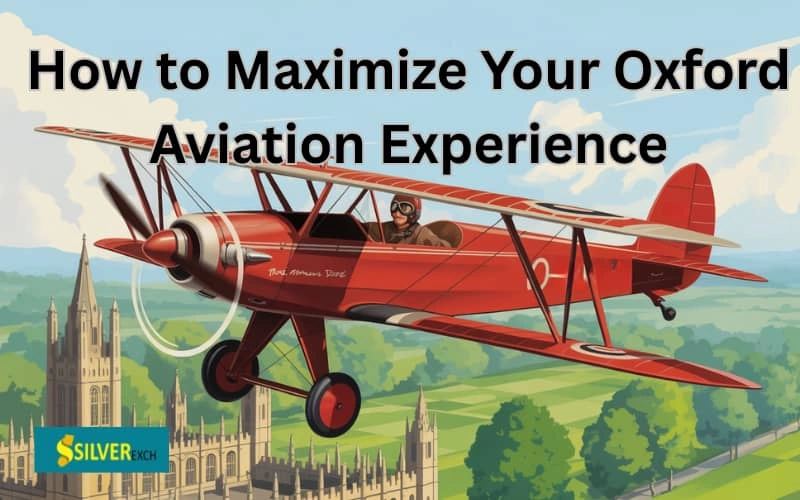If you are passionate about aviation and looking to develop your flying career, Oxford Aviation offers a world-class training experience that is both comprehensive and immersive silver exch. Whether you are a novice pilot starting your journey or an experienced aviator seeking advanced training, maximizing your Oxford Aviation experience is key to unlocking your full potential. In this article, we will explore practical tips, strategies, and insights on how to make the most of your time with Oxford Aviation, ensuring you gain the skills, knowledge, and confidence needed to excel in the aviation industry.
Understanding Oxford Aviation’s Unique Offering
Oxford Aviation is renowned for its high standards of pilot training, combining theoretical knowledge with extensive hands-on practice. Their courses often include private pilot licenses (PPL), commercial pilot licenses (CPL), instrument ratings, and multi-engine training, along with airline preparation programs. The institution’s partnerships with airlines and use of state-of-the-art simulators provide a realistic and career-focused environment.
To maximize your Oxford Aviation experience, the first step is understanding the full scope of what they offer. Familiarize yourself with the syllabus, training methods, and the resources available. This foundational knowledge allows you to plan your study schedule and training sessions efficiently.
1. Prepare Academically Before You Start
Oxford Aviation courses are rigorous and demanding. Before you even begin your formal training, invest time in preparing academically. Brush up on core subjects like physics, mathematics, and meteorology — these are fundamental to flight theory.
Additionally, engage with aviation-related reading materials, such as aerodynamics principles, navigation techniques, and aviation regulations. Oxford Aviation’s own study materials, if available ahead of time, should be reviewed so you can enter the program with a basic understanding, making learning smoother and less overwhelming.
2. Develop Strong Time Management Skills
One of the biggest challenges of the Oxford Aviation experience is managing the intensive workload. Between ground school, simulator sessions, and actual flight training, your schedule will be packed.
Effective time management is crucial. Use planners or digital calendars to block out dedicated study times, rest periods, and training slots. Prioritize tasks by urgency and difficulty, and break down study material into manageable segments. Avoid cramming; consistent, steady learning helps retain complex aviation concepts far better.
3. Take Full Advantage of Simulator Training
Oxford Aviation boasts some of the best flight simulators in the industry. These simulators replicate various flight scenarios, weather conditions, and emergency procedures, allowing you to practice safely and build muscle memory.
To maximize your simulator sessions, come prepared with specific goals. Review your previous sessions’ feedback and focus on weak areas, whether it’s instrument approaches, crosswind landings, or emergency procedures. Ask instructors for targeted exercises that push your limits.
Moreover, treat simulator sessions seriously — approach them as real flights. This mindset will increase your situational awareness and decision-making skills, essential qualities for any professional pilot.
4. Engage Actively with Instructors and Peers
Oxford Aviation’s experienced instructors are one of its greatest assets. They not only teach but mentor, offering valuable industry insights and career advice. Build strong relationships with your instructors by being proactive in asking questions, seeking clarification, and requesting feedback.
Similarly, your peers in the program form a supportive community. Study groups can help you tackle challenging subjects, share tips, and keep motivation high. The camaraderie developed during training can also evolve into a professional network that benefits your career after graduation.
5. Maintain Your Physical and Mental Wellbeing
The intensity of pilot training can be physically and mentally demanding. Long hours, early mornings, and the pressure to perform can lead to fatigue and burnout.
To maximize your Oxford Aviation experience, prioritize your health. Get adequate sleep, eat nutritious meals, and maintain regular exercise. Mental health is equally important; practice mindfulness, stress management techniques, or speak to a counselor if needed. A healthy body and mind contribute directly to your focus and performance during training.
6. Practice Consistent Self-Study and Revision
Oxford Aviation’s training includes a lot of classroom time, but your learning doesn’t stop there. Consistent self-study and revision are essential for cementing knowledge and preparing for exams.
Develop a routine where you review lecture notes, complete practice questions, and engage with additional resources such as aviation podcasts, videos, or interactive flight training apps. Regular revision prevents last-minute panic and builds confidence for theoretical exams.

7. Seek Additional Flying Hours Outside Structured Training
While Oxford Aviation provides comprehensive flight training, extra flying hours beyond mandatory lessons can significantly enhance your skills. If possible, book additional solo or dual flights to practice maneuvers, navigation, and emergency procedures.
More flight time increases familiarity with aircraft handling and decision-making in varied conditions. This experience builds intuition, reduces anxiety, and improves overall competence — vital for your career progression.
8. Embrace Feedback as a Growth Tool
During your Oxford Aviation journey, you will receive frequent feedback from instructors and examiners. Instead of viewing critiques negatively, embrace them as opportunities to grow.
Carefully analyze the feedback, identify patterns or recurring mistakes, and create action plans for improvement. This proactive approach will accelerate your learning curve and help you avoid making the same errors during critical assessments or future flying.
9. Understand the Importance of Aviation Regulations and Safety
A significant part of Oxford Aviation training focuses on aviation law, safety protocols, and air traffic procedures. Pilots must operate within strict regulatory frameworks to ensure safety in the skies.
Take these subjects seriously and aim to fully understand their application. Beyond passing exams, knowing the rationale behind regulations empowers you to be a safer, more responsible pilot — a quality highly valued by airlines and regulators.
10. Network and Explore Career Opportunities
Oxford Aviation is not just about training — it’s also a gateway to the aviation industry. Attend career fairs, guest lectures, and networking events hosted by Oxford Aviation or its partner airlines.
Introduce yourself to recruiters, learn about airline hiring requirements, and seek mentorship from alumni. Building a professional network early can open doors to internships, first officer positions, and other opportunities that jumpstart your aviation career.
Conclusion
Maximizing your Oxford Aviation experience requires a combination of preparation, active engagement, discipline, and self-care. By immersing yourself fully in the academic, practical, and social aspects of the program, you set yourself up for success in both your training and future pilot career.
Oxford Aviation offers a unique blend of expert instruction, advanced technology, and industry connections. With the right mindset and strategies, you can transform your training into a launchpad for a rewarding journey in aviation.






